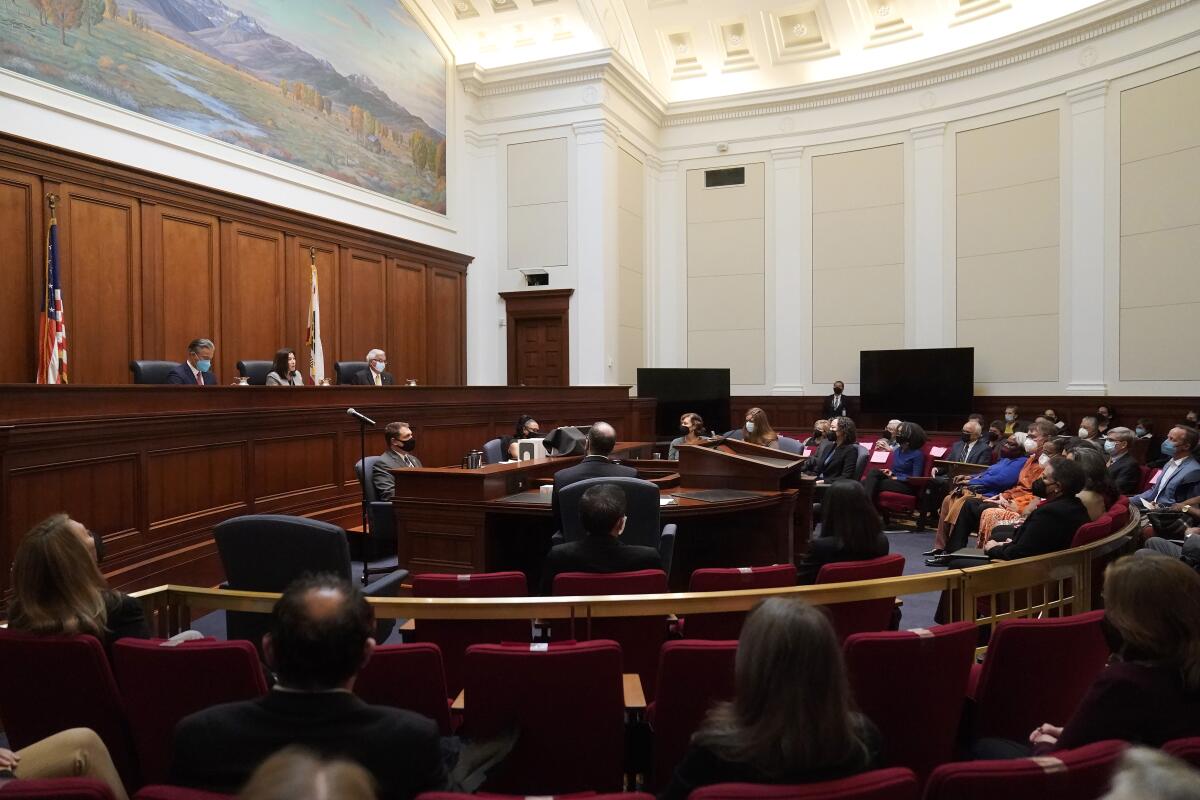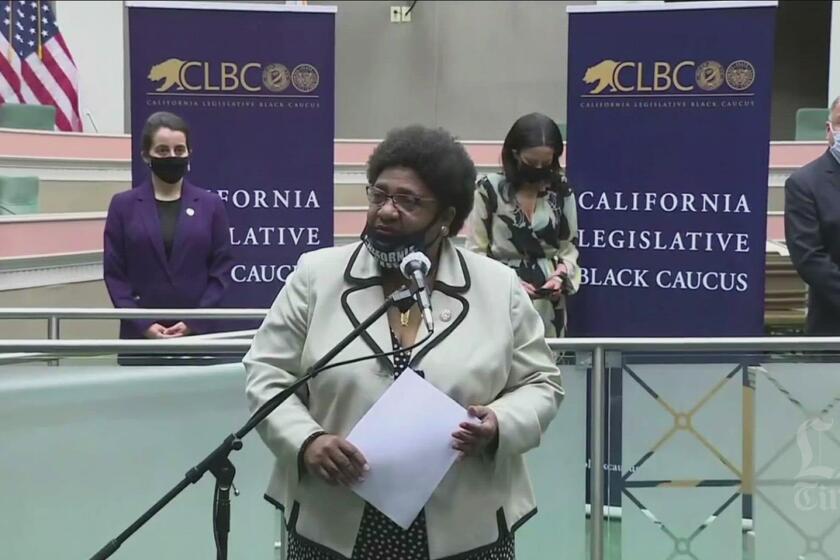California high court says new probation limits apply retroactively to some plea deals

- Share via
A California reform measure that capped probation to two years for many nonviolent offenders applies retroactively to plea agreements that hadn’t been finalized when the law took effect in 2021, the Supreme Court ruled Monday.
Where such deals included longer probation terms than are allowed under the new law, the state should reduce those terms accordingly while leaving the rest of the deals intact, the high court ruled.
How many defendants might qualify for reduced probation as a result of the ruling was not immediately clear, though the court noted that California has a large number of pending plea bargains.
The defendant whose case was before the court, Ricky Prudholme, pleaded guilty and agreed to serve a year in jail and three years of probation for a second-degree burglary in San Bernardino County in 2018. He later filed a notice of appeal. The deal was pending when the state passed Assembly Bill 1950 into law in 2020.
The high court agreed unanimously Monday with Prudholme’s claim that his probation should have been reduced to two years as a result of the new law, with the rest of his deal left intact. In doing so, it reversed part of a lower court ruling that would have sent Prudholme’s case back to the trial court so the state could reconsider the deal and decide whether to withdraw from it.
California Atty. Gen. Rob Bonta’s office, which supported remanding Prudholme’s case to the trial court, said it was reviewing the high court’s decision but otherwise declined to comment. Prudholme’s attorney also declined to comment.
U.S. Rep. Sydney Kamlager-Dove (D-Los Angeles), who sponsored AB 1950 when she was a member of the California Assembly, said she was pleased with the court’s decision, which she said will “have a huge impact” and help to address inequalities in the criminal justice system.
“We know that Black and brown people are disproportionately impacted by harsh sentencing, including long probationary periods that create barriers for reentering our society,” she said in a statement to The Times.
Associate Justice Carol Corrigan, who wrote the high court’s decision, said that reducing Prudholme’s probation would not alter the state’s deal with him so fundamentally that it warranted giving the state an opportunity to withdraw from the deal completely.
The California Legislative Black Caucus reflected on the death of George Floyd and urged the passage of several bills intended to address inequality in the state.
She wrote that the Legislature in passing AB 1950 had determined that shorter probation periods were preferable in such cases and that the intent of the legislation “would be thwarted” if disagreeing prosecutors were simply able to reconsider or withdraw from the terms of affected plea agreements.
That was particularly true, Corrigan wrote, given the “only recourse” of prosecutors displeased with the reform measure’s lesser probation periods would be to pursue more serious charges and prison time instead.
Offenders can be sentenced to probation in lieu of or in addition to a prison or jail sentence. The terms of probation vary but can require released offenders to regularly report to a probation officer, submit to drug testing and counseling, complete community service and remain out of trouble. Offenders may be returned to prison for violating probation.
AB 1950 capped probation for many misdemeanors at one year, and for many nonviolent felonies at two years. Those caps do not apply to violent crimes such as robbery, rape or murder; to crimes for which specific probation periods are already spelled out in the law; or to certain theft or financial crimes.
The bill was championed by criminal justice reform advocates who cited evidence that the greatest benefits of probation come early on after an offender’s release. Critics, including probation officials in the state, opposed the bill on grounds that it was unclear and would limit the benefits that probation provides, both to offenders and the state.
Corrigan noted one lack of clarity in the law, writing that legislators had failed to indicate whether they intended the law to apply retroactively — leaving the “difficult, divisive and time-consuming” process of deciding that to the courts.
She urged lawmakers to “regularly express their intent” as to whether laws should be retroactive in the future.
More to Read
Sign up for Essential California
The most important California stories and recommendations in your inbox every morning.
You may occasionally receive promotional content from the Los Angeles Times.















